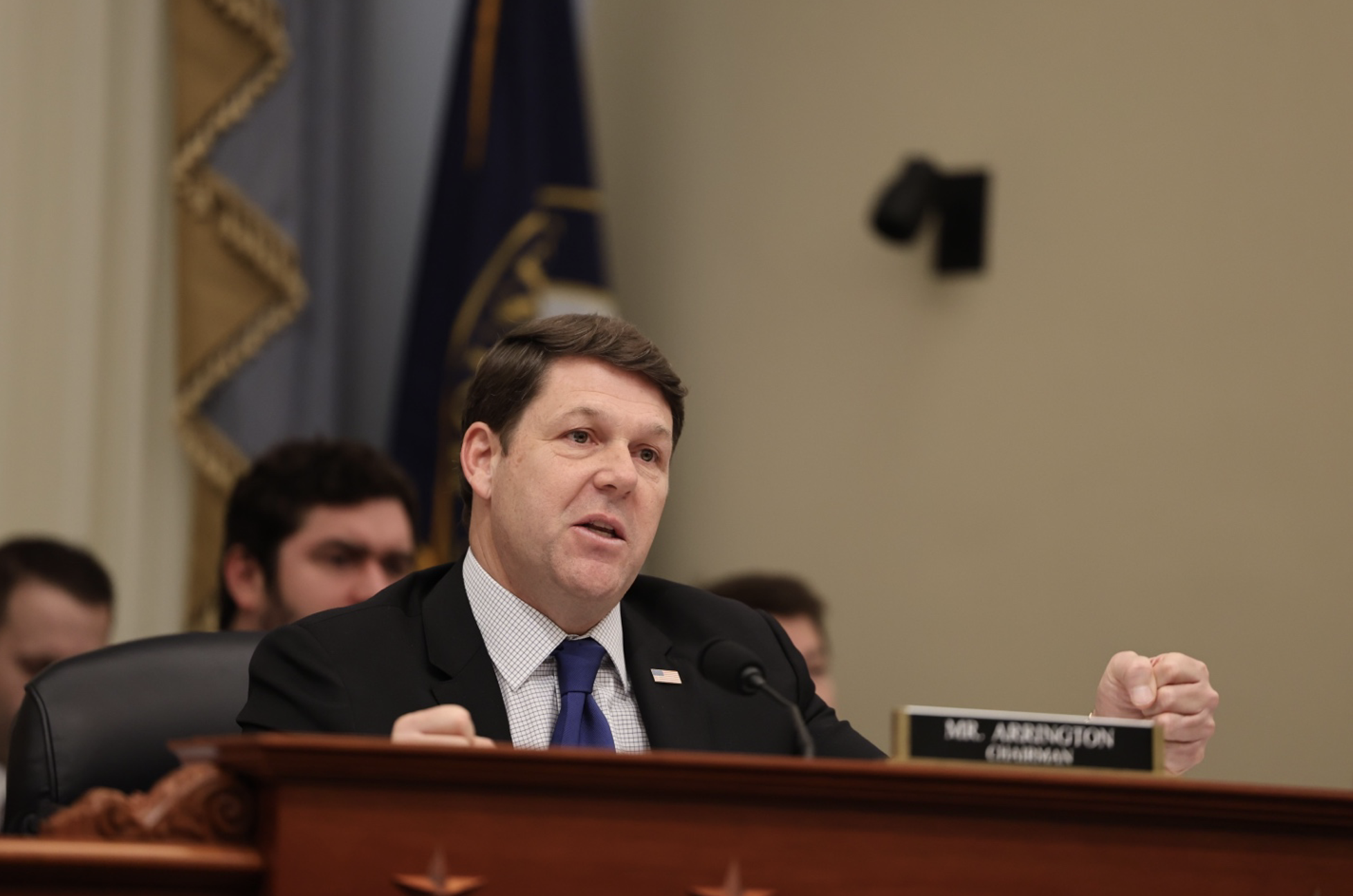House Budget Committee Chairman Arrington Delivers Opening Statements in Hearing Titled, “The Congressional Budget Office’s Budget and Economic Outlook”

Click HERE to watch Chairman Arrington’s Opening Statements
Opening Statement as Delivered:
The bottom line is, on Valentine's Day, when we think about how much we love our significant others, one could ask how much we love the country. How much do we love our childrens’ future in the country? Well, as Shakespeare said, let me count the ways.
Maybe the ways we're not loving our country — $20 trillion in additional debt over the next 10 years from $34 trillion record high to $54 trillion. Clearly, mandatory spending is driving this number, but also inflation, inflation is significant. We'll dig into that. That's because of the COLAs, the Cost-of-Living Adjustments, in these entitlement programs — we're spending a lot more money. Not to mention the 10,000 baby boomers retiring a day. That adds to this unsustainable fiscal path.
Interest rates are at record highs, and the interest expense on the debt is exploding. In fact, the [Congressional Budget Office] revision from May to February showed that, in just months, it was $125 billion in additional cost to service the debt. That's more than Homeland Security Department. That's more than the budget of the [Department of] Commerce and the [Department of] Education.
The debt, or the interest on the debt rather, is now higher than we spend on all of national defense. If the $870 billion projections come true, some projected will be upwards of a trillion dollars. Of the $20 trillion in additional debt, because of the current policies and programs of the federal government, we're going to see over 60 percent of all of that cost on interest alone; not to anything to address the solvency of our seniors’ safety nets, not anything to help ensure our soldiers and sailors are safe and successful in the most important job in providing for a common defense, not one dollar, or a dime, to infrastructure. Just paying China, Japan, and other bond holders of U.S. Treasuries because of our massive deficit spending and debt appetite. This was $1.7 trillion, the annual deficit last year, which is more than the entire discretionary budget that we're fighting over and often within my own party.
There is great concern, and yet there's some there's a silver lining in your report. I'm anxious to hear more about it. Director Swagel, you mentioned that one bright spot is that the deficit spending has actually gone down year over year in the short run. It's eclipsed by the growth and mandatory and interest in the 10 year. But year over year, deficit spending goes down because Republicans decided to use the action forcing mechanism and moment of the debt ceiling to bring my Democrat colleagues to the table and negotiate a spending cap deal. That [Fiscal Responsibility Act] FRA spending cap deal that was bipartisan, that we passed, and that the President signed into law, will save $1.6 trillion over 10 years.
As Moody's [Analytics] and Fitch [Ratings] mentioned in their reports, as they downgraded our credit rating and our outlook, we need to do more FRA-type deals that reduce spending. But we need to focus on mandatory programs — and by the way, in 10 years, mandatory spending, or spending which is on autopilot, goes from under 75 percent of the total budget of the United States to 79 percent: almost 80 percent of the entire budget.
We have a bipartisan fiscal commission, Director Swagel, that would focus on the long-term unfunded liabilities and address what Fitch and Moody's suggested: that we have a long-term plan and that we have both parties at the table to address it. If we could keep doing the FRA-like modest improvements, controlling spending on discretionary, and get serious about reining in this runaway spending on the mandatory side, we might save this country. We might give Jerome Powell something to be more confident and sanguine about with respect to America's fiscal future.
Again, thanks for coming. We appreciate your time and insights. And with that, I yield to my Ranking Member for as much time as he may consume.


